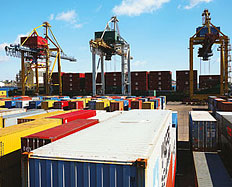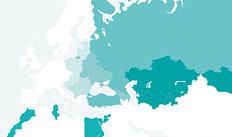Chapter 3
Extending the benefits of a banking union to countries outside the Eurozone
Under the European Commission proposal, countries outside the eurozone, even EU states, would neither benefit from, nor contribute to, ESM support. By staving off financial chaos in Europe, the banking union would benefit these countries indirectly. At the same time, there is also a concern among some host-country authorities that a common fiscal backstop for the eurozone banking system may tilt the competitive balance against banks or banking groups which are headquartered outside the single currency area. Although foreign subsidiaries would not be eligible for direct ESM support, they might be expected to benefit indirectly through their parent banks, making it harder for domestically owned institutions outside the eurozone to compete.
A further concern is that home-host coordination problems will persist after the creation of the single supervisory mechanism. Non-EU countries could not join the mechanism, and although non-eurozone EU members could opt in, they are unlikely to do so, since they would continue to be excluded from the possibility of direct recapitalisation by the ESM and may not want to lose supervisory control. From the perspective of these "outs", the single supervisory mechanism would merely replace eurozone home authorities by one eurozone supervisor – the ECB. Although the ECB might be a better partner, given its attention to macro-prudential concerns and its role chairing the EU-wide ESRB, coordination is bound to remain an issue as long as home- and host-country supervision is not fully integrated.
One obvious remedy for EU countries that see net benefits from banking union membership would of course be to join the eurozone. However, many of these countries may not yet meet the macroeconomic criteria required for accession, or may wish to retain the benefits of autonomous monetary policy for some time. For these reasons, it is worth exploring whether the benefits of banking union membership could be extended to non-eurozone countries in full or in part. Several options are conceivable, none of them simple.
First, the ESM treaty could be modified to allow non-eurozone EU members to join if they also join the single supervisory mechanism,‒that is, to become full members of the banking union without necessarily adopting the single currency. In addition to access to the ESM, these countries should also be allowed access to euro liquidity (through swap lines with the ECB; see below).
Aside from political hurdles, this option presents a conceptual obstacle: countries outside the eurozone would retain significant extra power to influence their domestic banking sectors even if they submit to ECB supervision, since they would maintain control of banks' local currency funding and other instruments that could have implications for the asset quality of banks (such as exchange rate policy). Potential access to the ESM safety net could therefore create a moral hazard problem. However, as previously argued, this problem already exists within the eurozone and could be addressed partly through the design of the safety net, and in particular by letting national authorities absorb most of the "first loss" should anything go wrong in their banking sectors.
Second, it may be possible to establish an "associate member" status in the banking union for non-eurozone countries. Unlike their eurozone counterparts, they would not give up supervisory control, nor would they benefit from the ESM. However, the ECB could give them access to euro liquidity – in the form of foreign exchange swap lines, similar to those which the US Federal Reserve Board, the ECB and the Swiss National Bank arranged with other central banks (including, in the case of the ECB, Poland and Hungary) during the 2008-09 crisis. In return, national supervisors would agree to share information with the ECB and to a periodic review of their supervisory policies. Swap lines would be committed from one review period to the next, and rolled over subject to the satisfactory completion of the review. In addition to extending a liquidity "shield" to non-eurozone European countries – which, from their perspective, would likely be at least as important as access to the ESM – this arrangement would have the advantage of giving the ECB, as the home supervisor, an incentive to cooperate closely with host authorities in forestalling host-country credit booms, particularly those denominated in euros.
Third, it might be possible to devise a supervisory regime that allows the host country to retain significant supervisory control but at the same time mitigates the coordination problem in respect of multinational banking groups. As described above, although host countries have formal supervisory power over subsidiaries, they have sometimes had limited de facto control because of a lack of information about, and influence over, parent bank funding. One way of mitigating this problem would be to have the ECB and the host country "trade" some supervision rights and duties. The ECB would share supervisory responsibility for the subsidiaries of multilateral groups. In return, the host supervisor could be given access to information about, and some influence over, the supervision of the entire group. The latter could be contemplated at several levels, ranging from normal participation in the single supervisory mechanism (with respect to the group) to the right to be heard. Even if the host supervisor's influence over ECB decisions is ultimately weak, sharing the formal obligation of supervising subsidiaries of eurozone banks with the ECB might increase the de facto control of local supervisors, by aligning the incentives of the ECB (as the home supervisor) more closely with those of the host overseer.
The first of these options would (at best) apply to EU members only. However, there would seem to be no legal or conceptual reason why the second or third avenues could not also apply to European countries that are not (or not yet) members of the European Union.







